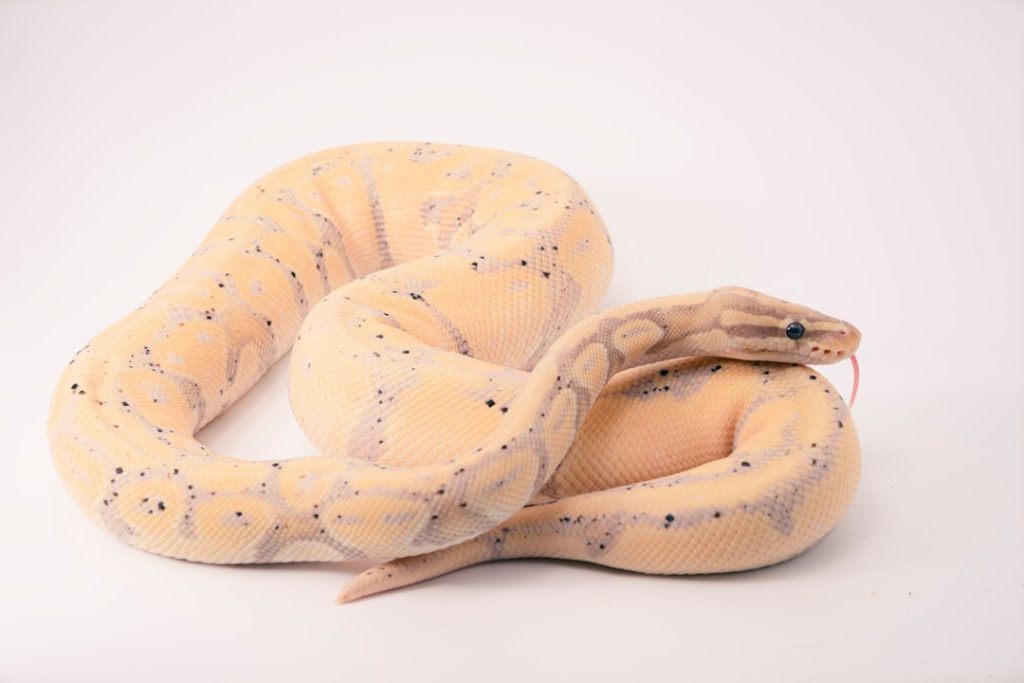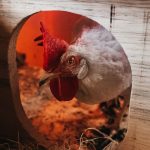Snakes are important members of ecosystems that exhibit specific behaviors relevant to chicken coop protection. As ectothermic animals, snakes seek external heat sources to regulate their body temperature, often leading them to warm spaces like coops, particularly in cooler weather. Snakes are adept predators that may target chickens as prey.
Their climbing abilities allow them to access coops through small openings. Snakes generally avoid confrontation and typically enter coops in search of food or shelter rather than to deliberately harm chickens. This understanding allows for a balanced approach to snake prevention, focusing on deterrence rather than eradication.
By recognizing these behavioral patterns, chicken owners can implement effective strategies to protect their flocks while minimizing harm to snakes.
Table of Contents
Key Takeaways
- Snakes are attracted to warm, dark, and sheltered areas, so understanding their behavior is crucial in preventing them from entering coops.
- Creating a snake-proof coop involves sealing all potential entry points, such as gaps in walls, floors, and roofs, to keep snakes out.
- Natural snake repellents like essential oils, sulfur, and garlic can be used to deter snakes from entering the coop.
- Implementing predator control measures, such as keeping a rooster or using motion-activated sprinklers, can help keep snakes away from the coop.
- Maintaining a clean and tidy environment by removing debris, keeping grass trimmed, and storing feed in sealed containers can help reduce the likelihood of snakes being attracted to the area.
- Using physical barriers like hardware cloth, snake-proof fencing, and snake traps can be effective in deterring snakes from entering the coop.
- Seeking professional assistance from a pest control expert or snake removal service may be necessary if snake infestations become unmanageable.
Creating a snake-proof coop
Sealing Off Entry Points
One of the most effective ways to protect your chickens from snakes is to create a snake-proof coop. This involves carefully inspecting the coop for any potential entry points and taking steps to seal them off. Start by examining the perimeter of the coop for any gaps or holes that snakes could use to gain access. Use materials such as hardware cloth or heavy-duty wire mesh to cover these openings, ensuring that they are securely fastened to prevent snakes from squeezing through.
Preventing Burrowing
Additionally, consider installing a concrete base around the perimeter of the coop to further deter snakes from burrowing underneath.
Eliminating Hiding Spots
Another important aspect of creating a snake-proof coop is to minimize potential hiding spots for snakes. Keep the area around the coop free of tall grass, brush, and debris, as these can provide cover for snakes. Regularly mow the grass and trim back any overgrown vegetation to create a clear and open space around the coop. By eliminating hiding spots, you make the area less attractive to snakes and reduce the likelihood of them taking up residence near your chickens.
Utilizing natural snake repellents

In addition to creating a snake-proof coop, you can also utilize natural snake repellents to further discourage snakes from approaching your chickens. There are several natural substances that snakes find unappealing and will actively avoid. For example, spreading a layer of cedar mulch around the perimeter of the coop can act as a natural deterrent, as snakes dislike the scent of cedar.
Similarly, essential oils such as cinnamon, clove, and eucalyptus can be diluted with water and sprayed around the coop to create an unpleasant environment for snakes. Another natural snake repellent is sulfur, which can be sprinkled around the perimeter of the coop to create a barrier that snakes are reluctant to cross. Additionally, some gardeners have had success using garlic as a snake repellent by crushing garlic cloves and spreading them around the coop.
These natural repellents can be effective in deterring snakes without posing any harm to your chickens or the environment.
Implementing predator control measures
In addition to protecting your chickens from snakes, it’s important to implement predator control measures to safeguard them from other potential threats. Predators such as raccoons, foxes, and birds of prey can pose a significant danger to chickens, so it’s essential to take steps to keep them at bay. Start by securing the coop with sturdy locks and latches to prevent predators from gaining access.
Consider installing motion-activated lights or sound devices to deter nocturnal predators from approaching the coop. Furthermore, consider adding a layer of protection by installing a predator-proof fence around the perimeter of the coop. Use materials such as hardware cloth or welded wire mesh with small openings to prevent predators from digging under or squeezing through the fence.
Additionally, consider adding a roof or cover to the coop to protect against aerial predators such as hawks and owls. By implementing these predator control measures, you can create a safe and secure environment for your chickens, protecting them from a variety of potential threats.
Maintaining a clean and tidy environment
Maintaining a clean and tidy environment is essential for preventing snakes and other predators from being attracted to your coop. Regularly remove any spilled feed or food scraps from the area around the coop, as these can attract rodents and other small animals that may in turn attract snakes. Keep the coop clean and free of debris, as cluttered and unkempt areas provide ideal hiding spots for snakes and other predators.
Additionally, regularly inspect the coop for any signs of damage or wear and tear that could potentially create entry points for snakes or other predators. Repair any holes or gaps in the structure of the coop and ensure that doors and windows are securely sealed when not in use. By maintaining a clean and tidy environment, you can minimize potential attractions for snakes and predators while also ensuring the overall safety and well-being of your chickens.
Using physical barriers to deter snakes

Snake-Proof Fencing
One effective method is to install snake-proof fencing around the perimeter of the coop. Use materials such as hardware cloth or welded wire mesh with small openings to create a barrier that snakes are unable to penetrate. Bury the bottom of the fence several inches into the ground to prevent snakes from burrowing underneath.
Snake Traps and Barriers
Another physical barrier that can be effective in deterring snakes is the use of snake traps or barriers specifically designed for this purpose. These traps can be strategically placed around the perimeter of the coop to capture any snakes that may attempt to approach.
Natural Snake Repellents
Additionally, consider using snake repellent plants such as marigolds, wormwood, or lemongrass around the coop to create a natural barrier that snakes are reluctant to cross.
Seeking professional assistance if necessary
If despite your best efforts, you continue to experience issues with snakes or other predators entering your coop, it may be necessary to seek professional assistance. A professional pest control expert or wildlife removal specialist can provide valuable insight and expertise in effectively addressing these issues. They can conduct a thorough assessment of your property and recommend tailored solutions to prevent snakes and other predators from accessing your chickens.
Additionally, professional assistance may be necessary if you encounter venomous snakes on your property or if you have concerns about handling or removing snakes safely. It’s important to prioritize safety when dealing with potentially dangerous wildlife, so don’t hesitate to seek professional help if you feel unequipped to handle the situation on your own. In conclusion, protecting your chickens from snakes and other predators requires a multi-faceted approach that encompasses understanding snake behavior, creating a secure coop environment, utilizing natural repellents, implementing predator control measures, maintaining cleanliness, using physical barriers, and seeking professional assistance if necessary.
By taking proactive steps to deter snakes and other predators, you can create a safe and secure environment for your chickens while also promoting harmony with wildlife in your area.
If you’re looking for natural ways to keep snakes away from your chickens, you may also be interested in learning about different types of chicken coops. Check out this article on Hannah Montana Chicken Coop for a unique and stylish option, or this one on A-Frame Chicken Coop for a space-saving design. You can also read about the importance of the floor of the chicken coop and how it can impact the health and safety of your flock.
FAQs
What are some natural ways to keep snakes away from chickens?
Some natural ways to keep snakes away from chickens include keeping the chicken coop and surrounding area clean and free of debris, using essential oils such as cinnamon, clove, and cedarwood, and installing snake-proof fencing around the coop.
Do snakes pose a threat to chickens?
Yes, snakes can pose a threat to chickens as they may prey on eggs, chicks, and even adult chickens. It is important to take measures to keep snakes away from the chicken coop to protect the chickens.
Are there any plants that can help repel snakes?
Yes, some plants such as marigolds, wormwood, and lemongrass are known to have repellent properties against snakes. Planting these around the chicken coop can help deter snakes.
How can I make the chicken coop less attractive to snakes?
To make the chicken coop less attractive to snakes, it is important to keep the area clean and free of clutter, seal any gaps or openings where snakes could enter, and remove any potential food sources such as rodents.
Are there any predators that can help keep snakes away from chickens?
Some predators such as cats, dogs, and certain species of birds can help keep snakes away from chickens. However, it is important to ensure that these predators do not pose a threat to the chickens themselves.
Meet Walter, the feathered-friend fanatic of Florida! Nestled in the sunshine state, Walter struts through life with his feathered companions, clucking his way to happiness. With a coop that’s fancier than a five-star hotel, he’s the Don Juan of the chicken world. When he’s not teaching his hens to do the cha-cha, you’ll find him in a heated debate with his prized rooster, Sir Clucks-a-Lot. Walter’s poultry passion is no yolk; he’s the sunny-side-up guy you never knew you needed in your flock of friends!







